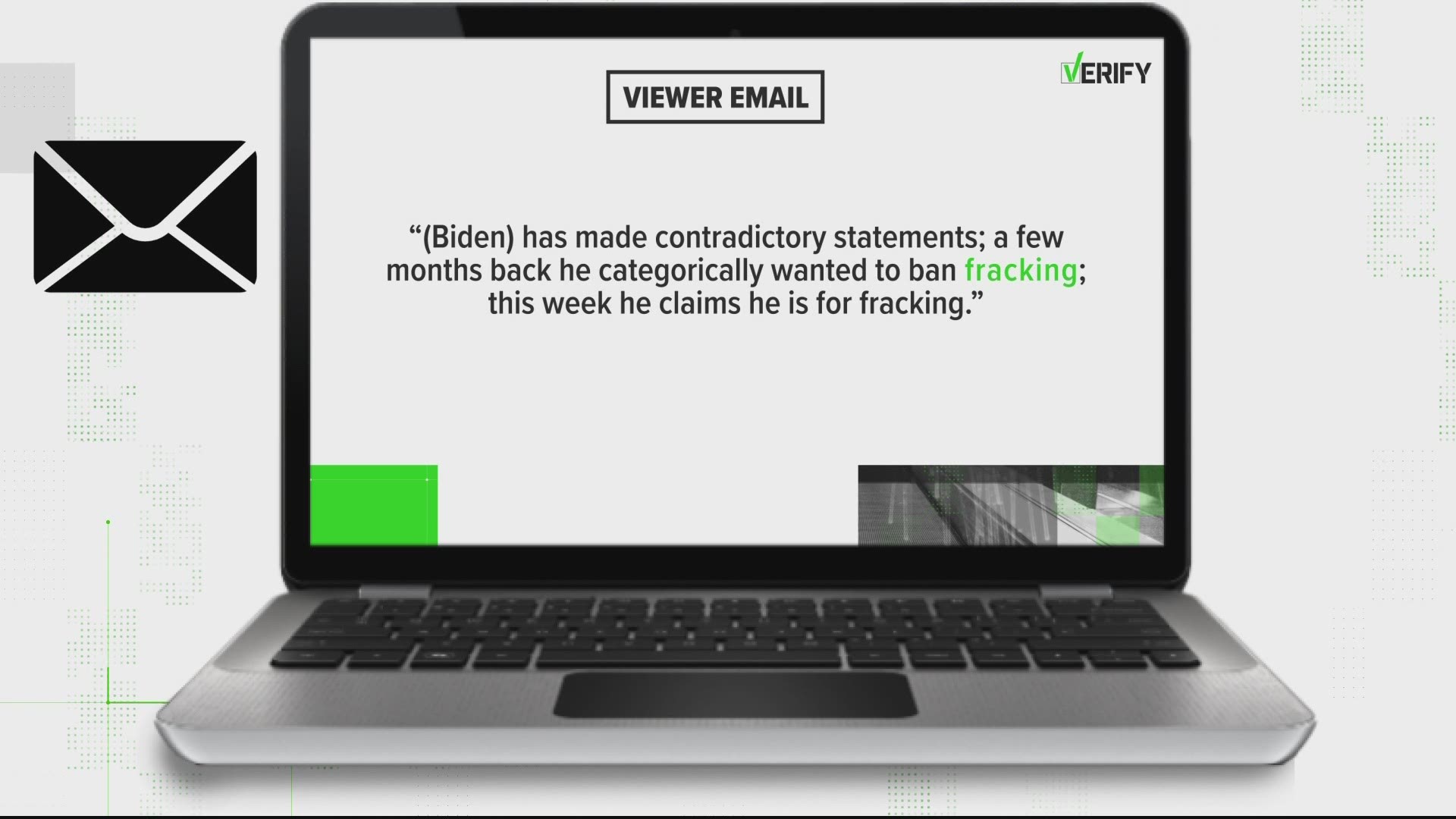WASHINGTON — Fracking: It's a topic that has been all the rage of the recent presidential debates, and all over social media about what it means and what candidate has said what.
Short for "hydraulic fracturing", the process involves water, chemicals, and sand being injected at high-pressure underground, cracking open rock layers and helping release trapped oil or gas inside.
At the final presidential debate on Thursday, multiple claims were thrown from both candidates about the topic of fracking. The Verify team exists to get the facts and clear up any misinformation, so we're focusing more on fracking and the jobs impacted by it.
QUESTION:
Are millions of Americans working in the oil industry?
ANSWER:
No, millions of people are not directly employed by the oil and gas industry. That number is inflated by adjacent industries.
SOURCES:
Josh Bivens, Director of Research at the Economic Policy Institute
Peter Maniloff, Economics Professor at the Colorado School of Mines
PROCESS:
Fracking, oil, and renewable energy took center stage for part of Thursday night's final presidential debate. Afterward, Twitter lit up with questions and claims, with a common one being that if fracking is banned, millions of Americans could lose their jobs.
According to preliminary data from the Bureau of Labor Statistics, just 156,900 people held jobs in oil and gas extraction in September 2020. The pandemic harshly affected the oil industry job market, and September's numbers are the highest since December 2019.
Verify researchers contacted Josh Bivens, the Director of Research at the Economic Policy Institute. They are a nonprofit, nonpartisan think tank focused on the economic conditions of low and middle-income Americans.
In an emailed statement, Bivens told us the Bureau of Labor Statistics is looking at jobs directly related and created within the oil and natural gas industry.
Economics professor Peter Maniloff agreed.
"It’s going to miss two important things: suppliers who BLS classifies in other sectors and jobs like the local bartender or schoolteacher that wouldn’t exist but for the local o&g industry but aren’t part of it either," Maniloff said. "I’m not aware of any government estimate of either of those."
Our experts said that claim about "millions of jobs" includes jobs in tangentially related industries, like the supply chain of the oil and natural gas industry.
Bivens told us that number also includes the industries propped up by the spending of incomes earned by oil and gas workers.
"So, if executives of an oil company (or executives of an asphalt shingle producer, or the owner of a gas station) spend money on restaurants and vacations, the jobs staffing the restaurants and hotels are labeled as jobs supported by the oil and gas industry," Bivens told us via email.
"But if energy produced with oil and gas was replaced with energy supplied by windmills and solar panels, then this spending in other sectors like restaurants and tourism wouldn’t go away, it would just be supported by incomes from solar and wind generating industries instead of oil and gas."
So we can Verify that no, millions of people are currently not directly employed by the oil and gas industry.

